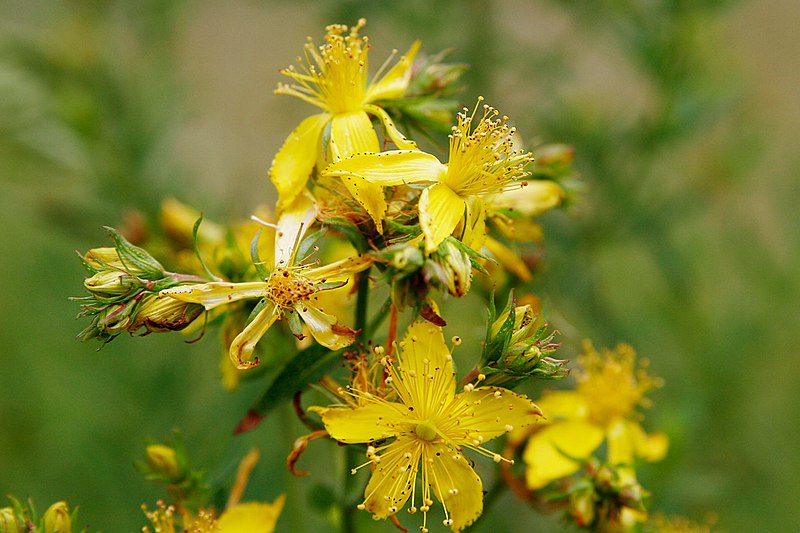St. John’s wort (Hypericum perforatum) is an herbal preparation which has been shown, in some studies, to be effective for the treatment of mild to moderate depressive symptoms. St. John’s wort is now one of the most commonly used herbal products in the United States and is widely used in Europe.
We don’t know exactly what is responsible for the antidepressant effects of St. John’s wort; however, it appears that St. John’s wort may increase levels of serotonin in the brain, which is what conventional antidepressants, including the selective serotonin reuptake inhibitors or SSRIs, do.
For the treatment of premenstrual dysphoric disorder or PMDD, SSRIs are the first-line pharmacological agents and are highly effective. So it is possible that St. John’s wort, which may also modulate serotonin levels in the brain, may also be effective for the treatment of premenstrual symptoms. However, is there any data to support its effectiveness in this setting?
Several studies have assessed the effectiveness of St. John’s wort, for the treatment of premenstrual symptoms. A total of four studies looked at St. John’s wort; however, most of these studies tested the medicine in women with premenstrual syndrome (PMS) rather than PMDD.
Two of the studies indicated that St. John’s wort was superior to placebo for the treatment of physical symptoms but did not have a significant impact on depressive symptoms, anxiety or irritability. One of the studies reported a similar trend but the findings were not statistically significant. Ryoo and colleagues reported that St. John’s wort improved premenstrual symptoms of emotional lability, hostility or anger, and impulsivity, but did not differ from placebo in terms of its impact on depressive symptoms, anxiety, energy level, pain and other physical symptoms.
So the jury is still out.
That said, many women who present with PMDD are not interested in using SSRI and SNRI antidepressants for the treatment of their symptoms. Sometimes this resistance is related to the stigma of taking psychiatric medications; other times the decision reflects concerns about side effects, such as weight gain or sexual dysfunction.
Based on the data we have, one might consider a trial of St. John’s wort in a woman with PMDD. It is important to note that while St. John’s wort is a “natural” remedy, it is being used as a medication and has side effects, as well as drug interaction. Some words of Caution:
Side Effects: St. John’s wort may cause insomnia, vivid dreams, anxiety, irritability, stomach upset, and diarrhea. St. John’s wort is also associated with photosensitivity and skin rash.
Risk of hypomania and mania: The literature multiple case reports of hypomania and hypomania in individuals with bipolar disorder treated with Saint John’s wort.
Contraception: St. John’s wort decreases the effectiveness of hormonal contraceptives, including contraceptive implants and oral contraceptive pills. This can result in unintended pregnancy, as well as breakthrough bleeding.
Use during pregnancy: Currently there is no data regarding the use of SJW during pregnancy. Therefore, the use of effective contraception is recommended in women of reproductive age.
Ruta Nonacs, MD PhD
Read More:
Jang SH, Kim DI, Choi MS. Effects and treatment methods of acupuncture and herbal medicine for premenstrual syndrome/premenstrual dysphoric disorder: systematic review. BMC Complement Altern Med. 2014 Jan 10;14:11. Free Article.
Ryoo JG, Chun SL, Lee YJ, Suh SH. The Effects of St. John’s wort on Premenstrual Syndrome in Single Women: A Randomized Double-Blind, Placebo-Controlled Study. Clinical Psychopharmacology and Neuroscience 2010; 8(1): 30-37








Leave A Comment